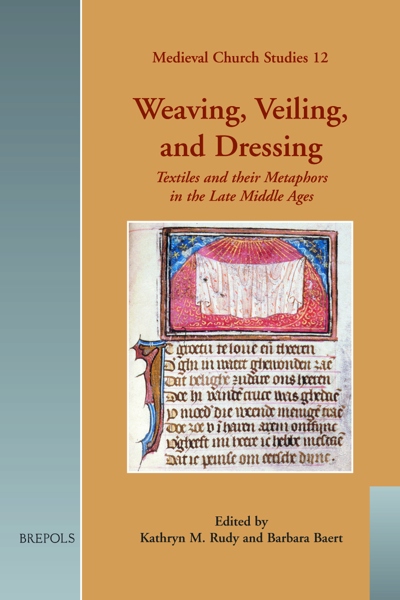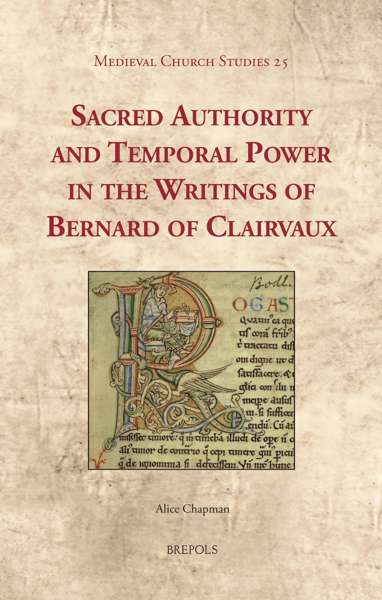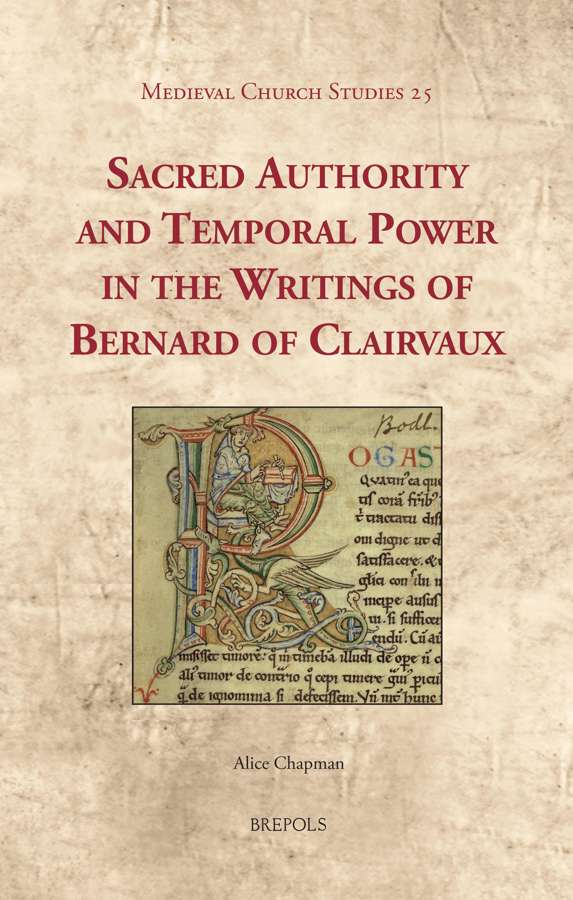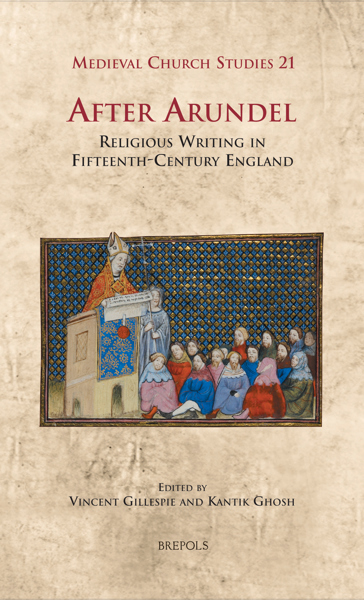
Sacred Authority and Temporal Power in the Writings of Bernard of Clairvaux
Alice Chapman
- Pages: 237 p.
- Size:156 x 234 mm
- Language(s):English, Latin
- Publication Year:2013
- € 85,00 EXCL. VAT RETAIL PRICE
- ISBN: 978-2-503-54105-1
- Hardback
- Available
- € 85,00 EXCL. VAT RETAIL PRICE
- ISBN: 978-2-503-57224-6
- E-book
- Available
This book examines the relationship between ecclesiastical authority and secular power in the writings of the twelfth-century figure St Bernard of Clairvaux.
"I would recommend this book to anyone who is interested in the thought of Saint Bernard and the development of political thought in the High Middle Ages. A. C. has succeeded in writing an attractive and helpful analysis of Bernard's political thought in the context of his involvement in the Church and society of his time." (Brian Patrick McGuire, in: Revue d'Histoire Ecclésiastique, 2014, 109/3-4, p. 1004-1006)
"(...) puede decirse que el libro de Alice Chapman es un estudio serio y profundo de un tema crucial en el pensamiento de Bernardo de Claraval, como lo es la relación entre la autoridad eclesiástica y el poder temporal; su lectura es muy recomendable para cualquier estudioso no sólo de este Padre de la Iglesia latina, sino a cualquier interesado en cuestiones de teoría política medieval." (Aurelio Pastori Ramos, in: The Medieval Review, 15.06.42)
"Although this volume is based on Chapman's doctoral dissertation at Cambridge, it is a work that reveals an admirable academic maturity. (...) Chapman combines a close reading of a large part of Bernard's corpus with perceptive linguistic analysis. By this means she has produced a truly fine book." (John Sommerfeldt, in: Speculum, 90/3, 2015, p. 785-786)
"The book has a comprehensive bibliography and the index is useful for tracing historical figures mentioned. The inclusion of political and ideological developments and historical figures make this primarily linguistic study enjoyable and informative, and a valuable addition to studies on Bernard of Clairvaux and the relationship of politics and language." (Stephanie L. Hathaway, in: Parergon, 31.2, 2014, p. 154-155)
"Chapman’s new book sketches out a reasonable survey of Bernard’s political theology, and implicitly makes the excellent point that Bernard’s thought was shaped over the course of an active career rather than imposed based on a priori notions of ecclesiastical authority. (...) Chapman has shed some light on one of medieval political theology’s thorniest problems." (John D. Cotts, in: American Historical Review, 120.3, June 2015, p. 1091-1092)
"Die Verfasserin hat einen in sich schlüssigen Beitrag zu einem wichtigen Aspekt in den Schriften Bernards von Clairvaux geleistet und damit erneut die weitgespannte philosophische, aber auch praktischpolitische Bedeutung des Werkes des hl. Bernhards als Kirchenlehrer, Ordensgründer, Theologe und Politiker im Hochmittelalter und der Herkunft und Entwicklung seiner Ideenwelt in einem bedeutsamen Teilgebiet aufgezeigt. Man legt das auch äußerlich schöne Werk ungern aus der Hand." (Immo Eberl, in: Francia-Recensio, 2015/3)
«L'étude d'Alice Chapman (…) examine de façon assez précise et exhaustive la position exprimée par Bernard de Clairvaux dans ses différents écrits..» (Christophe Grellard, dans les Cahiers de Civilisation Médiévale, 59/234, 2016, p. 178)
« (…) cette étude sémantique, intelligemment menée, offre une belle synthèse bien fondée et s’avère un outil de travail remarquable. » (A. Noblesse-Rocher, dans Revue d’Histoire et de Philosophie Religieuses, 95/4, 2015, p. 492)
The aftermath of the Investiture Controversy left the relationship between the Church and imperial power in ruins. In reaction to these developments, the Concordat of Worms in 1122 sought a compromise to restore the association between the two sides. The Concordat was only the beginning, and a spirit of cooperation between the Church and temporal powers began to emerge. This collaborative relationship is exemplified in the writings of Bernard of Clairvaux (1091–1153).
Bernard of Clairvaux was both a Cistercian abbot and a major political figure in the twelfth century. He inherited the Latin vocabulary of earlier Christian writers, but needed a more nuanced language to express the complex political relationship between church and state during the settlement of episcopal investiture. In his writings Bernard distinguished between the authority (auctoritas) of the Church and the power (potestas) of temporal rulers. The language of separation was designed to delineate spheres of influence rather than to reflect opposition – a vocabulary that ultimately presents the relationship between the two powers as less of a fencing match and more of a dance.
Sacred Authority and Temporal Power emphasises and enhances our understanding of the significance of Bernard’s writings for the mediation of power and authority in the twelfth century.
Introduction: Authority and Power in the Writings of St Bernard of Clairvaux
Chapter 1. Auctoritas and Potestas: Context and Development
Chapter 2. Auctoritas: Ecclesiastical Order
Chapter 3. Auctoritas: Monastic Order
Chapter 4. Auctoritas: Connection and Application
Chapter 5. The Cooperation of Sacred Authority and Temporal Power
Conclusion: Authority and Power in the Writings of St Bernard of Clairvaux
Bibliography
Index




